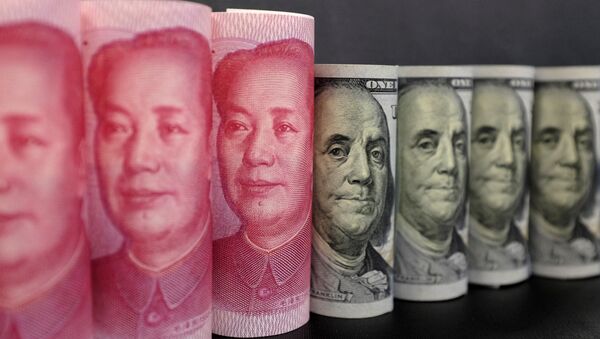Experts warn that more Chinese companies could default on their debts issued in US dollars, and that the rising cost of borrowing and a weakening yuan could prevent more firms from meeting upcoming payments, as an increasing number of bonds mature in the next few years, CNBC reported.
According to a research note issued early this month by the Japanese bank Nomura, defaults on Chinese offshore corporate dollar bonds (OCDBs) since January totalled $3.4 billion, compared with none last year. The bank expects more defaults to come over the next two years.
With defaults in Chinese OCDBs also increasing in the fourth quarter, issuing bonds in foreign currencies could involve substantial currency risks if not properly hedged for changes in exchange rate movements.
While a weak yuan boosts the competitiveness of China's exports, it also makes it more expensive for Chinese firms importing raw materials. During its rise to the world’s second-largest economy, China has accumulated a staggering debt, estimated at over 250 percent of GDP.
Just as some Chinese companies are issuing new bonds to raise money to pay off current obligations, analysts believe that falling demand for new bond issuance will make it harder for companies to raise funds.
READ MORE: China's New Economic Challenges Require More Debt
One consequence of this could be smaller capital inflows, adding pressure to Beijing’s forex reserves and possibly weakening the yuan further.
Combined with a tight domestic credit supply, there would be "eventually more downward pressure on the economy," Nomura warned.




